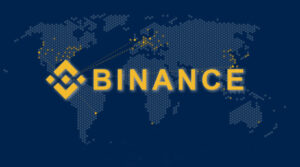Citing a poll ran by a small cryptocurrency exchange, Zhu said:
Interesting that @binance , a lightly regulated exchange, has also become the most trusted crypto exchange among actual users. You cant build trust by acquiring govt licenses/rubber stamps. https://t.co/1OXkskgHAr
— Zhu Su 朱溯 (@zhusu) December 23, 2018
Is Binance Lightly Regulated?

In most regions, lawmakers impose strict regulations on cryptocurrency trading to prevent the utilization of digital assets in money laundering and processing criminal proceeds.
Although the main platform of Binance focuses on pure cryptocurrency-to-cryptocurrency trading, it also operates strictly regulated fiat-to-crypto exchanges in Uganda and soon in Singapore with support from the Singaporean authorities and local financial institutions.
Since its debut, Binance has placed heavy emphasis on security and investor protection. To this date, the exchange remains in a prestigious group of exchanges alongside Coinbase and a handful of other exchanges of not suffering a single hacking attack or a security breach since its inception.
The trust from investors and traders on Binance toward the exchange likely comes from the track record of the company and the efficient communication between the firm’s executives and the community.
Changpeng Zhao, the CEO of Binance, is well recognized for frequent updates regarding potential updates, changes, and announcements related to the exchange. In previous instances where the company ran important database or server updates, CZ and the Binance team provided hour-to-hour updates, ensuring that the funds of investors on the platform remain safe.
Without regulatory pressure, Binance voluntarily established a partnership with Chainalysis, a blockchain data analysis company that traces wallets and transactions potentially involved in fraudulent and criminal operations.
In October, Wei Zhou, the CFO at Binance, said :
By working with Chainalysis, we are able to continue building a foundational compliance program that enables the next phase of our growth. Our vision is to provide the infrastructure for a blockchain ecosystem and increase the freedom of money globally, while adhering to regulatory mandates in the countries we serve.
Do Crypto Exchanges Need Strict Regulation?
For immediate investor protection and as a short-term solution, strict policies to ensure a high level of security, transaction monitoring, and Know Your Customer (KYC) and Anti-Money Laundering (AML) systems is certainly a viable option.
But, for established exchanges that acknowledge their responsibilities to prevent the usage of digital assets in criminal operations and that are well equipped with strong internal management systems, as Japan as recently proposed, a self-regulatory status could be considered to provide regulatory leniency to the rapidly growing cryptocurrency exchange market.
Featured image from Shutterstock. Su Zhu portrait from LinkedIn.
